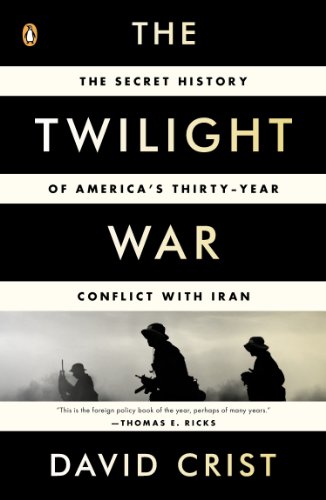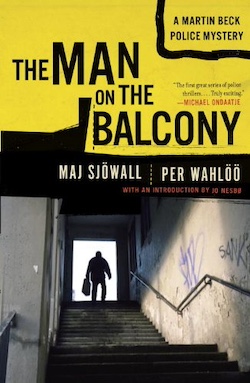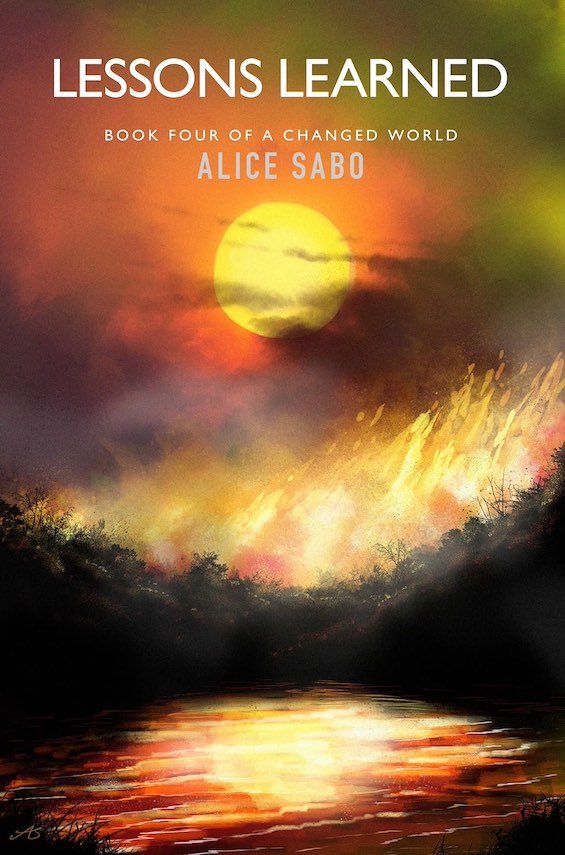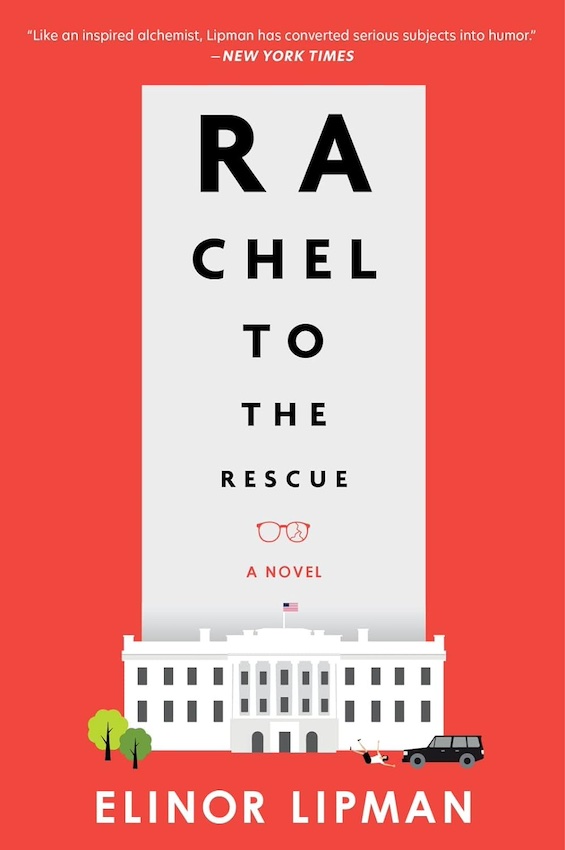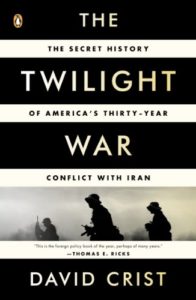
If you were among those who sighed with relief when Barack Obama was reelected because you’d been concerned that a Republican administration would invade Iran, David Crist has news for you. In fact, The Twilight War is full of surprises, even for one who stays relatively well informed about world affairs. The underlying message — the meta-message, if you’ll permit that conceit — is that what we normally consume on a daily basis as “news” is an awkward mixture of critical opinion, wishful thinking, rumor, partisan posturing, self-serving news leaks, and a smattering of hard information. And that’s particularly true of the low-level, secret US-Iran war.
Estimated reading time: 4 minutes
When it comes to Iran, the purveyors of news have done an especially poor job of keeping us informed. As David Crist makes clear in this illuminating report on the three decades of conflict, tension, miscalculation, and profound misunderstanding that have characterized our two countries’ relationship, we have indeed engaged in what can only be described as a US-Iran war for several extended periods. And when I say war, I mean soldiers, sailors, and air force pilots shooting at one another, laying mines, launching missiles at ships and ground facilities, and generally forcing one or both of the two governments to decide between escalation and retreat.
The Twilight War: The Secret History of America’s Thirty-Year Conflict with Iran by David Crist (2012) 655 pages ★★★★☆
There was even one heart-stopping incident during the Reagan Administration when a rogue, high-ranking U.S. Admiral conspired with the Chairman of the Joint Chiefs of Staff to invade Iran with massive force — and, apparently, was ordered to pull back from the brink largely because the Administration was consumed with covering up the President’s active role in the Iran-Contra affair.
The 2004 Presidential election campaign brought into the spotlight the U.S. support for Saddam Hussein during the Iran-Iraq war of the 1980s because Defense Secretary Donald Rumsfeld had been photographed shaking hands with Saddam. Then we learned, some of us for the first time, that the U.S. had supplied weapons and munitions to Iraq. However, what went largely unreported was the extent to which the U.S. military built up its forces in the Persian Gulf to prevent Iran from flanking Iraq or widening the war to the Gulf Arab states, provided combat intelligence that helped Iraq turn back Iranian advances, and even intervened with force on Iraq’s side from time to time.
A neoconservative design on the region
It was this history — combined with an understanding of the neoconservative design on the region — that led the Iranian leadership to conclude in 2003 that the U.S. invasion of Iraq presaged an imminent attack on Iran itself. The Ayatollah Khamenei and his minions were so frightened of this prospect that they used every backchannel available to them to attempt to get the U.S. to the negotiating table, where they were prepared to arrive at a grand solution to the differences between the two countries. Are you surprised to learn that the Bush Administration flatly rejected the overtures?
In other words, this has been a nail-biting relationship. Even worse, the outlook today doesn’t look any brighter than it ever has.
About the author
Author David Crist is a military historian for the U.S. Government, a reserve Marine Corps colonel, and the son of one of the early four-star commanders of CENTCOM, which was created in the 1980s to coordinate U.S. military affairs involving Iran and the Middle East. Given this pedigree, it’s not unfair to wonder whether Crist himself is guilty of some of the same sins I attributed earlier to the news media. Clearly, he’s extremely well informed and had access to military and government archives that might well be closed to other writers. However, a little poking around on the Web reveals that Crist got at least a few of his facts wrong, and in some places his interpretation of events has clearly been colored by his official associations.
The Twilight War is an especially dense work. The hardcover edition runs to 656 pages, but it reads as though it’s a thousand, largely because Crist (military historian to the core) seems to include a capsule biography of every other officer and combatant engaged in every firefight he reports. Like the epic dramas of Cecil B. DeMille, The Twilight War has a cast of thousands. All in all though, this is a revealing and important book, well worth reading, even if that means slogging through the mud.
For related reading
This is one of 13 good recent books about American foreign policy.
For more insight about international affairs, see my post, 20 good nonfiction books about espionage. And this is one of the many good nonfiction books about national security.
You may enjoy browsing through 20 top nonfiction books about history.
For more good books on the history of the US, see Top 20 popular books for understanding American history.
And you can always find my most popular reviews, and the most recent ones, on the Home Page.

